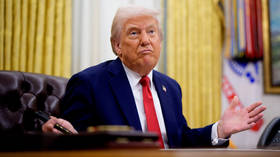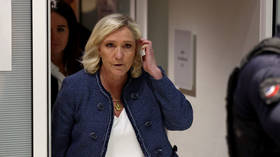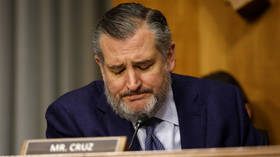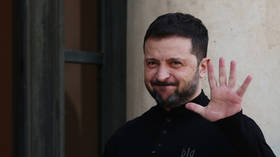‘Rights are lost by cowardly laws': Snowden says govts, not terrorists, undercut free speech
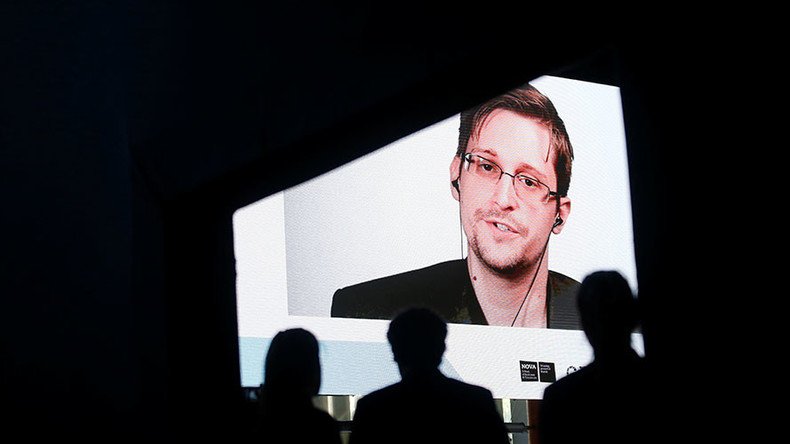
Whistleblower Edward Snowden offered an impassioned argument against terrorism being used as a pretext for introducing mass surveillance in a video-linked speech to a migration conference on Tuesday night.
Speaking to the Estoril conference on global migration in Portugal via video from Moscow, where he has lived for the past four years after being granted asylum by Russia in 2013, Snowden argued that terrorists do not possess the power to destroy people’s rights or weaken a society’s strength. That only happens when those in a position of power use extremists as an excuse to create laws that encroach on people’s liberties, he said.
READ MORE: ‘WikiLeaks staff are in danger’: Pilger, Kiriakou discuss Assange’s ongoing legal battle
“Terrorists don’t hate us for our freedom, they don’t even know what our freedoms are... Terrorists are incapable of destroying our rights or diminishing our society they lack the strength – only we can do that.”
“Rights are lost by cowardly laws that are passed in moments of panic. Rights are lost to the cringing complicity of leaders who fear the loss of their office more than the loss of our liberties.”
"If you want to defeat bad ideas drag it out into the light" @Snowden#EstorilConferencespic.twitter.com/aj1bR5ZWL5
— Estoril Conferences (@EstorilConf) May 30, 2017
Snowden argued that governments aren’t using mass surveillance tools to counter terrorism, rather they are being used to discover journalist’s sources, specifically “journalists who have written stories that were embarrassing to the government.”
READ MORE: Terrorist suspects should be locked up in internment camps, says ex-police chief
The whistleblower further argued that the best way to defeat terrorist ideologies is to allow them to get a full public airing. “The way to discredit terrorist ideas is not by censoring them from public spaces… these ideas are not attractive, these ideas grow best in the dark… Drag it out onto the stage of the world, show people why it is wrong and why we can do better.”
The former NSA contractor made a similar argument when answering a question from the floor which asked him to discuss recent comments from UK Prime Minister Theresa May which made the case for regulating the internet to combat terrorism.
"Mass surveillance is effective for many things but it does not save lives" @Snowden#EstorilConferencespic.twitter.com/b9X3GOCUXL
— Estoril Conferences (@EstorilConf) May 30, 2017
Snowden noted that the Investigatory Powers Act – which the UK parliament passed last year and which Snowden described as “the most extreme surveillance law in the history of the western world” – was being justified as a means of rooting out terrorists.
READ MORE: UN slams Britain’s ‘Big Brother’ anti-terrorism strategy
Snowden said he understood the impulse, but said that there is no public evidence that these policies are effective. On the contrary, there is clear evidence that they cause harm to the public, he said.
“We have seen people fall on blacklists. We have seen, again and again throughout history, political parties be hamstrung, to face resistance, be silenced by governments because of their politics, their beliefs, their ideologies, which over time are always derived from what state security agencies say is a necessary effort to protect the nation.”
“I’m not going to so far to say this is sort of an evil plan on behalf of the United Kingdom or any other nation,” Snowden said. “But we need to focus on one thing, the need for speech, access to free speech, free association, a free press, the ability to pick up a phone and be able to dial someone that you love without worrying about what that looks like in government database somewhere, how that will be reviewed 10 years from now when you get on a politician’s bad side. This is the foundation of any free society.”



